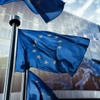INTRODUCTION
INTRODUCTION
Technology is transforming the world around us and this brings a combination of excitement and opportunity, but also challenges to our way of life, labor markets and societies. To tackle the great technological transformation of our time, public and private actors need to understand what is legitimate in the eyes of the citizens and what sort of technological future they may be ready to embrace. Our annual survey, European Tech Insights, explores attitudes towards technological change with the aim of understanding how technology is transforming our lives and how it should be governed.
The 2025 edition of European Tech Insights delves deeper into attitudes towards technological and geopolitical disruption, strategic autonomy, defense spending, AI use, and trust in algorithms. The report reveals that Europeans support technological advancement if it reinforces security, inclusion, and social welfare; but show resistance when change feels imposed, unaccountable, or misaligned with the values that define their societies.
- Publications
SURVEY METHODOLOGY
SURVEY METHODOLOGY
European Tech Insights 2025 was conducted in October 2025. In this study, we gathered responses from 3,010 adults spanning 10 countries: Estonia, France, Germany, Italy, the Netherlands, Poland, Romania, Spain, Sweden, and the United Kingdom. The samples maintained a representative balance with regards to age, gender, region and studies.
key findings
key findings
Technological progress, but not at any cost
While competitiveness dominates Europe’s political agenda, it ranks low among citizens’ priorities. Only 22% see it as Europe’s top technological goal, compared with 42% who prioritize safety and resilience and 36% who favor inclusion. The same logic applies to AI investment to stay competitive: around 71% of Europeans would rather see public funds allocated to priorities such as education and healthcare. For citizens, technological progress must serve social welfare — not compete with it.
Allied but not aligned
In a context of geopolitical rivalry, a clear majority of Europeans continue to prefer alignment with the United States over China, yet the share favoring Beijing is rising sharply — up 15 points since 2023. At the same time, almost four in ten Europeans favor standing firm and pushing back against U.S. and Big Tech pressure. Together, these attitudes suggest a Europe that still sees Washington as a partner but more cautiously than in the past.
The age of European autonomy
Support for defense and technological sovereignty is no longer confined to political rhetoric; it has become part of public sentiment. A majority of Europeans (53%) would not accept higher defense spending if it meant cuts to social programs. Most citizens also prefer European-made security technologies (63%), even at a higher price, and almost three in four (72%) want sensitive data stored only on European servers. Europeans appear increasingly willing to prioritize self-reliance and security over economic convenience or global openness.
AI meets a wall of skepticism
Across the areas that touch everyday life, Europeans show reluctance to hand over meaningful decisions to artificial systems. A strong majority oppose the use of AI in their children’s education (77%), would not trust AI to manage their personal finances (81%), and overwhelmingly prefer an imperfect human boss to a flawless AI (90%). Furthermore, almost half of European citizens fear that AI could threaten their employment or income. Together, these findings constitute signs of growing distrust of automation in contexts that involve care, judgment, or responsibility.
PREVIOUS EDITIONS
PREVIOUS EDITIONS
European Tech Insights 2024 was developed in partnership with Apolitical, and also included the perspectives of a small sample of public servants. The report revealed that even if a majority of Europeans backed AI to increase the efficiency of public service delivery, they also were concerned about the potential hacking of elections through AI in a superelectoral year.
European Tech Insights 2023 highlighted a considerable trust in the EU to regulate AI, with Europeans generally open to balancing privacy with security needs. The report also noted a preference for more governmental oversight on AI and automation, emphasizing the ongoing consideration of the impacts of technological progress.
European Tech Insights 2022 was marked the resurgence of a war in Europe and an intense geopolitical context. The 2022 edition examined perceptions on the Ukrainian conflict, technology in democracy, and the role of emerging tech.
European Tech Insights 2021 is composed of two studies: Part I focused on how the pandemic has altered our habits and perceptions with regards to healthcare, work, social networks and the urban space. Part II revealed how Europeans are embracing technologies (from AI to automation) and what are the implications for our democracies and societies.
European Tech Insights 2020 revealed how the onset of the pandemic had a major impact on global attitudes towards data privacy, politcs and the regulation of new technologies.
European Tech Insights 2019 confirmed a shared intuition among researchers: the Fourth Industrial Revolution is producing a growing sense of insecurity and uncertainty among our fellow citizens.
To find out more download our reports above.
News
News




